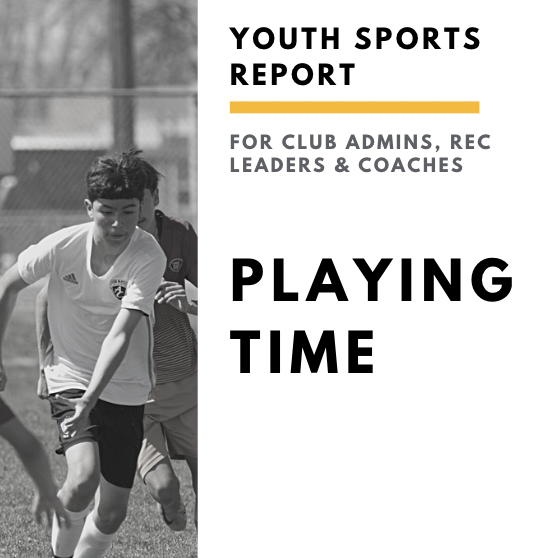Get our exclusive report. Download the iSport360 Club Switching Report Here – For Club Admins, Rec Leaders and Coaches.
How to Speak to Your Coach About Playing Time
Playing time is a critical aspect of an athlete’s development and enjoyment of their sport. However, at times, players may want to discuss their playing time with their coach. Initiating this conversation can be intimidating, but with the right approach, it can be a productive and respectful exchange. In this blog post, we will explore some key strategies to help you effectively communicate with your coach about playing time concerns.
Choose the Right Time and Place:
Timing is crucial when it comes to having a conversation with your coach. Seek a moment when both you and the coach are relaxed and not occupied by other pressing matters. It is essential to find a private and quiet space where you can have an uninterrupted conversation. This demonstrates your respect for the coach’s time and ensures that your concerns are heard without distractions.
TIP: Schedule time after practice or during the day. Remember that you can have a conversation over the phone or on zoom. While in-person is always best, there are other alternatives too.
Prepare and Be Specific:
Before approaching your coach, take the time to reflect on your performance, strengths, and areas for improvement. Be specific about what you would like to discuss regarding your playing time. Instead of simply stating that you want more playing time, provide examples of instances where you feel you could contribute more to the team or specific skills you believe you have developed. This shows your coach that you have thoughtfully considered the situation and are serious about your concerns.
TIP: Journal and self reflect on your strengths, weaknesses as both a player on the field and as a teammate. Be specific. Your coach may ask and you should be ready to be part of the conversation.
Maintain a Respectful and Positive Attitude:

Remember, your coach is responsible for making decisions that benefit the team as a whole. Be open-minded and willing to listen to their perspective. Avoid placing blame or becoming defensive during the discussion. Instead, express your desire to contribute more to the team and ask for constructive feedback on how you can improve. Demonstrating a positive attitude will increase the likelihood of a productive conversation.
TIP: Remember that you can’t control others but you can control how you react to others or situations.
Active Listening and Seeking Feedback:
Listening actively is an essential part of effective communication. While discussing your playing time concerns, pay attention to your coach’s feedback and suggestions. Ask questions to gain a deeper understanding of their expectations and what you can do to earn more playing time. Be receptive to constructive criticism and use it as an opportunity for growth and development. Demonstrating to your coach that you value their input will strengthen your relationship and improve your chances of receiving increased playing time in the future.
TIP: You may want to ask your coach, “What can I do to help the team win?”
Commitment and Work Ethic:

Express your commitment and dedication to the team and your personal growth as an athlete. Discuss how you plan to work on the areas highlighted by your coach and how you will contribute positively, both on and off the field. Emphasize your willingness to put in the extra effort during training sessions and show that you are a team player who puts collective goals above personal desires. Coaches appreciate players who exhibit a strong work ethic and a genuine passion for the game.
TIP: Coaches love when players play on their own. This shows dedication, passion and the will to make sacrifices for the benefit of the team.
Initiating a conversation with your coach about playing time requires careful thought, respect, and open-mindedness. The NFHS has a presentation that you can access for more details. By choosing the right time and place, being specific about your concerns, maintaining a positive attitude, actively listening, and demonstrating commitment, you can have a productive discussion with your coach. Remember that the coach’s decision-making process is complex, and your coach’s guidance and feedback are valuable for your growth as a player. By engaging in open and respectful dialogue, you can foster a healthy coach-player relationship and potentially increase your playing time.
iSport360 is the only app that does it all for youth sports. For more information on what we do, click here.
About the author:
Amy Masters is a sports mom, coach and club administrator. She has been coaching youth sports for more than 10 years. She started Jr Lions Field Hockey, the youth recreation program for the Hunterdon County community growing it from 40 players in year 1 to 150 players by year 3. A few years later, she saw the love and competitiveness grow then started Omega Field Hockey Club serving NJ and PA players. Prior to coaching, she was a collegiate field hockey player for Lock Haven University. In her spare time (lol), she is head of marketing for iSport360, where she brings her love of sports to a bigger audience.
Learn more or request a demo of our youth sports software that is helping teams improve communication, organization and player development.
July 21, 2023





